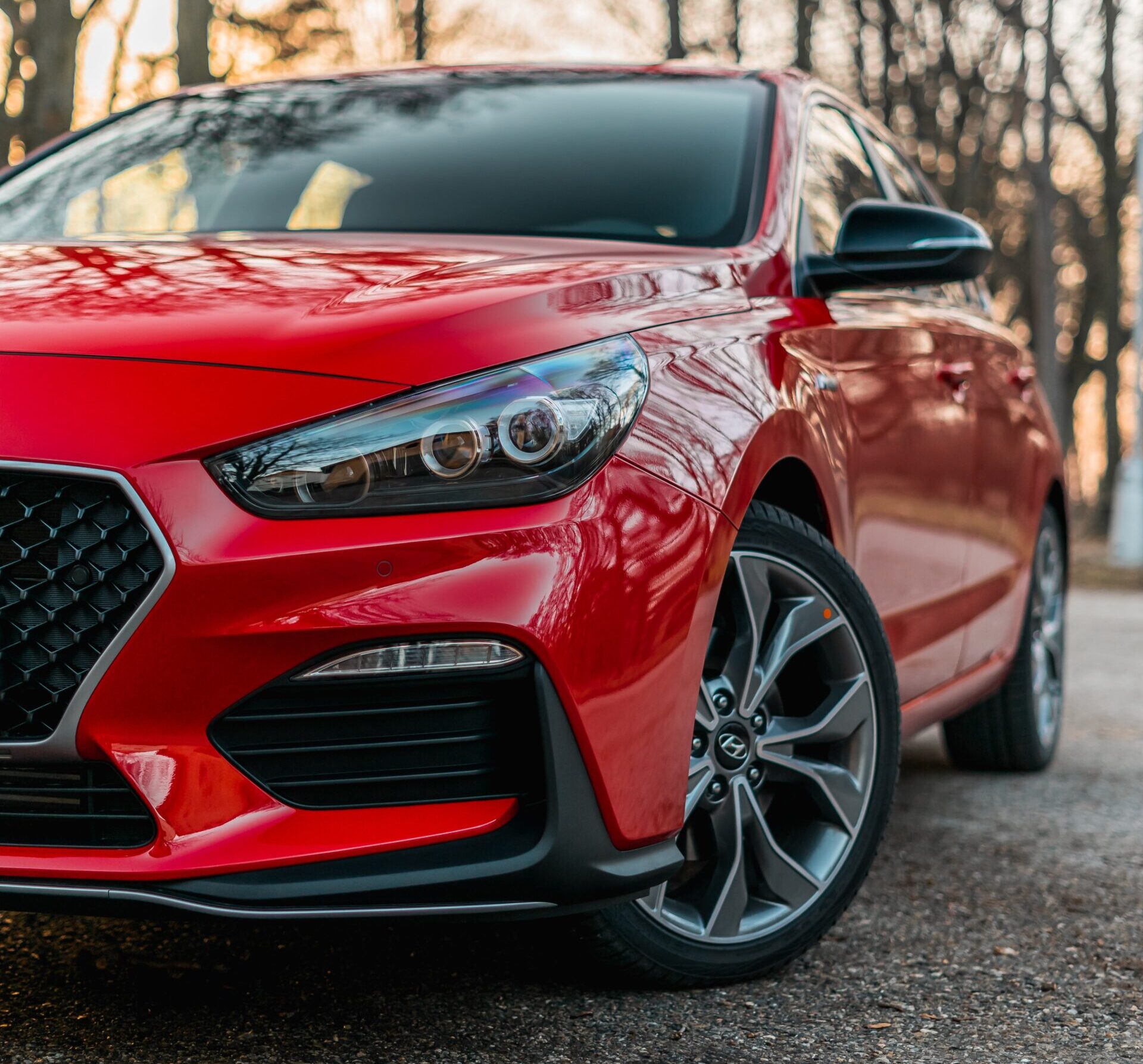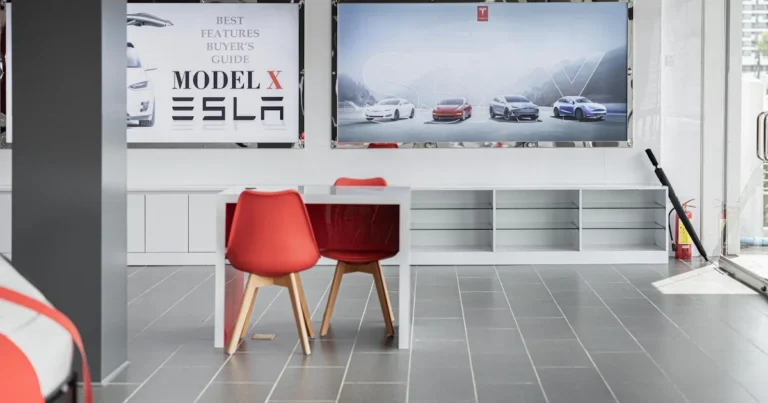Support our educational content for free when you purchase through links on our site. Learn more
Lease or Buy a Car in 2022? 9 Things You Must Know! 🚗
Picture this: You’re standing at the dealership, keys in hand, heart racing—but the big question looms larger than the shiny hood ornament: Should you lease or buy your next car in 2022? With supply chain chaos, rising interest rates, and electric vehicles stealing the spotlight, this decision is more complex than ever. Did you know the average new car loan payment hit nearly $650/month this year, while leases hover around $520? That’s a big gap—but which path truly wins for your wallet and lifestyle?
In this guide, we’ll unpack 9 critical factors that will help you decide whether leasing or buying is the smarter move for you. From upfront costs and depreciation to credit score impacts and even how your car choice affects your mortgage chances, we’ve got you covered. Ready to drive your decision home? Let’s hit the road!
Key Takeaways
- Leasing offers lower upfront and monthly payments but no ownership equity and mileage limits.
- Buying builds long-term equity and suits high-mileage drivers or those wanting to keep cars for years.
- Your credit score and debt-to-income ratio are crucial, especially if you plan to buy a home soon.
- Leasing is ideal for those who love new cars every few years and want warranty peace of mind.
- Buying is better if you want unlimited mileage, customization, and long-term savings.
- Electric vehicle leases are booming in 2022, offering a flexible way to drive green.
- Avoid new leases or loans right before applying for a mortgage to protect your approval chances.
👉 Shop Popular Models:
- Toyota RAV4: TrueCar | Edmunds | Toyota Official
- Honda CR-V: TrueCar | Edmunds | Honda Official
- Tesla Model 3: Tesla Official | Edmunds | Auto Trader
Table of Contents
- ⚡️ Quick Tips and Facts
- The 2022 Automotive Landscape: A Wild Ride! 🎢
- Leasing vs. Buying: The Ultimate Showdown! 🥊
- 1. Upfront Costs: Cash Outlay Comparison 💸
- 2. Monthly Payments: What’s Your Budget Saying? 💳
- 3. Depreciation: The Silent Killer of Value 📉
- 4. Long-Term Costs: Total Cost of Ownership (TCO) Unpacked 📊
- 5. Flexibility & Lifestyle: Your Driving Habits Matter! 🛣️
- 6. Equity & Ownership: Building Your Automotive Asset? 🔑
- 7. Maintenance & Warranty: Peace of Mind or Potholes? 🛠️
- 8. Tax Implications: Uncle Sam’s Cut 🧾
- 9. End-of-Term Options: What Happens Next? 🤔
- Credit Score Chronicles: Does Leasing or Buying Boost Your Financial Fitness? 📈
- Leasing vs. Buying: The Mortgage Maze – How Your Car Choice Affects Homeownership Dreams 🏡
- When Leasing Shines Brightest ✨ (and When it Doesn’t 🌑)
- The Environmental Angle: Green Driving Choices ♻️
- Making Your Decision: A Step-by-Step Guide to Clarity 🧭
- Conclusion: Your Road Ahead, Paved with Knowledge! 🛣️
- Recommended Links: Drive Deeper! 🔗
- ❓ Frequently Asked Questions (FAQs) About Leasing vs. Buying ❓
- Reference Links: Our Sources & Further Reading 📚
⚡️ Quick Tips and Facts
Welcome to the ultimate guide on whether it’s better to lease or buy a car in 2022! Before we dive into the nitty-gritty, here are some quick nuggets from the automotive enthusiasts at Car Leases™ to get you revved up:
- ✅ Leasing usually means lower monthly payments but no ownership equity.
- ❌ Buying requires higher upfront costs but builds long-term value.
- ✅ Average new car loan payment in 2022: around $648/month; average lease payment: $522/month (Experian Q1 2022).
- ✅ Leasing counts as recurring debt for mortgage lenders; buying can improve your credit over time.
- ✅ Leasing is ideal if you like driving new cars every few years and want warranty coverage.
- ❌ Buying is better if you drive a lot, want to keep your car long-term, or want to avoid mileage limits.
- ✅ Electric vehicle leases are booming in 2022 — check out our Electric Vehicle Leases for the latest deals.
- ✅ Your debt-to-income ratio (DTI) is king when applying for a mortgage — car payments, whether lease or loan, affect it.
Want to see how these facts play out in real life? Stick with us — we’ll break down every angle, from credit scores to tax benefits, and even how your car choice impacts buying a home. Buckle up! 🚗💨
The 2022 Automotive Landscape: A Wild Ride! 🎢
2022 has been a rollercoaster for car buyers and lessees alike. Supply chain snarls, chip shortages, and soaring demand have pushed prices sky-high. Leasing deals have tightened, and buying a new car often means paying a premium or waiting months.
What’s Changed in 2022?
- Inventory shortages mean fewer discounts on new cars.
- Interest rates have ticked up, affecting loan affordability.
- Lease incentives have shrunk as manufacturers try to manage inventory.
- Electric vehicles (EVs) are gaining traction, with tax credits and new models changing the game.
For example, the 2022 Toyota RAV4 Prime is a hot EV hybrid lease option, but demand means fewer lease specials. Meanwhile, used car prices remain high, making buying used a less attractive option than usual.
What Does This Mean for You?
- Leasing may be pricier but offers flexibility if you want to avoid depreciation risks.
- Buying can be a better investment if you plan to keep the car long term.
- Credit health is more important than ever to secure the best financing or lease terms.
If you want to jump on the best lease deals, check out our Top 15 $0 Down Lease Specials in Orlando (2025) for inspiration!
Leasing vs. Buying: The Ultimate Showdown! 🥊
Let’s break down the core aspects of leasing vs. buying in 2022. We’ll score each on a 1-10 scale to help you see which fits your style.
| Aspect | Leasing (Score) | Buying (Score) |
|---|---|---|
| Upfront Costs | 9 | 5 |
| Monthly Payments | 8 | 5 |
| Depreciation Impact | 7 | 4 |
| Long-Term Cost | 5 | 8 |
| Flexibility | 9 | 6 |
| Equity & Ownership | 2 | 10 |
| Maintenance & Warranty | 8 | 6 |
| Tax Benefits | 6 | 7 |
| End-of-Term Options | 7 | 8 |
1. Upfront Costs: Cash Outlay Comparison 💸
Leasing typically requires a lower down payment or sometimes even $0 down, making it easier to get into a new car without draining your savings. Buying, on the other hand, often demands a substantial down payment (usually 10-20% of the vehicle price).
Pro Tip: If you want to preserve cash flow, leasing is your friend. But remember, a lease might include fees like acquisition fees and security deposits.
2. Monthly Payments: What’s Your Budget Saying? 💳
Leases generally offer lower monthly payments because you’re only paying for the vehicle’s depreciation during the lease term plus interest and fees. Loans require payments that cover the entire vehicle cost plus interest.
Example: A 2022 Honda CR-V lease might run you $350/month, while buying the same model could be $450/month on a 60-month loan.
3. Depreciation: The Silent Killer of Value 📉
Depreciation is where buying can sting. New cars lose 20-30% of their value in the first year alone. Leasing lets you avoid the risk of depreciation since you return the car at lease end.
If you buy, you’re on the hook for the vehicle’s value loss, which affects your trade-in or resale price.
4. Long-Term Costs: Total Cost of Ownership (TCO) Unpacked 📊
Buying often wins on TCO if you keep your car for many years after the loan is paid off. Leasing means continuous payments if you keep leasing new cars.
| Cost Factor | Leasing | Buying |
|---|---|---|
| Monthly Payments | Lower but recurring | Higher but ends after loan |
| Maintenance | Often covered under warranty | Owner pays after warranty ends |
| Repairs | Minimal during lease term | Owner responsible |
| Insurance | Similar | Similar |
| Taxes & Fees | Paid on lease payments | Paid upfront and annually |
5. Flexibility & Lifestyle: Your Driving Habits Matter! 🛣️
Leases come with mileage limits (usually 10,000-15,000 miles/year). If you drive less, leasing can be great; if you drive more, expect penalties.
Buying offers unlimited mileage and freedom to customize your ride. If you’re a road warrior or love personalizing your car, buying is better.
6. Equity & Ownership: Building Your Automotive Asset? 🔑
Buying means you own the car outright after the loan is paid, building equity. Leasing means you’re essentially renting — no equity, no asset.
If you like the idea of owning a car for years and possibly selling it later, buying is your path.
7. Maintenance & Warranty: Peace of Mind or Potholes? 🛠️
Leases often cover the vehicle’s warranty period, so major repairs are usually covered. Buying means you’re responsible for maintenance after the warranty expires.
For example, a 3-year lease on a 2022 Hyundai Tucson will likely cover most repairs, while buying means budgeting for repairs after 3 years.
8. Tax Implications: Uncle Sam’s Cut 🧾
Leasing may offer tax advantages for business owners, as lease payments can be deducted as a business expense. Buying allows you to claim depreciation and interest deductions if you use the vehicle for business.
For personal use, taxes are generally similar, but check your state’s rules.
9. End-of-Term Options: What Happens Next? 🤔
At lease end, you can:
- Return the car and lease a new one.
- Buy the car at the residual value.
- Walk away (if no damage or mileage penalties).
When buying, you keep the car or sell/trade it anytime.
Credit Score Chronicles: Does Leasing or Buying Boost Your Financial Fitness? 📈
Your credit score is a financial superpower. Both leasing and buying affect it, but differently.
- Leasing: Adds a new installment account, increasing your credit mix. However, higher credit utilization from lease payments can temporarily lower your score.
- Buying: Paying down a car loan can improve your credit score over time by reducing debt.
Mortgage lenders see leases as recurring debt, which can impact your debt-to-income ratio (DTI) and borrowing power (source).
For more on credit and leasing, visit our Credit Score and Car Leasing section.
Leasing vs. Buying: The Mortgage Maze – How Your Car Choice Affects Homeownership Dreams 🏡
Buying a home is a huge financial milestone. Your car payment—lease or loan—can make or break your mortgage application.
Understanding Your Debt-to-Income Ratio (DTI) 📊
DTI is the percentage of your gross monthly income that goes toward debt payments. Lenders prefer a DTI below 43%, though FHA loans may allow up to 50% in some cases.
Car payments count as debt, whether lease or loan. For example:
| Income | Max Debt @ 43% DTI | Current Debt | Remaining for Mortgage |
|---|---|---|---|
| $9,000 | $3,870 | $1,000 | $2,870 |
If your lease or loan payment is $500, that’s a big chunk of your debt allowance.
Navigating Government-Backed Mortgages (FHA, VA, USDA) with a Car Payment 🏛️
- FHA: Lease payments always included in DTI. Auto loans excluded if fewer than 10 payments remain and payment is under 5% of gross income.
- VA: Similar rules, but large payments even with few months left can count.
- USDA: Lease payments always included; auto loans excluded if 10 or fewer payments remain.
Smart Moves Before Mortgage: Optimizing Your Financial Profile 🧠
- Pay down or pay off car loans before applying.
- Avoid new leases or loans during mortgage application.
- Reduce credit card balances to lower monthly minimum payments.
- Wait until after closing to make major purchases like a car.
Following these tips can lower your DTI and boost mortgage approval chances.
When Leasing Shines Brightest ✨ (and When it Doesn’t 🌑)
Ideal Lease Candidates ✅
- Drivers who want a new car every 2-3 years.
- Those who drive under mileage limits (typically <15,000 miles/year).
- People who prioritize lower monthly payments and warranty coverage.
- Business owners who can deduct lease payments.
- Fans of electric vehicles leasing programs (see our EV leases).
When Buying is Your Best Bet 🎯
- Drivers who rack up high mileage.
- Those who want to keep their car for 7+ years.
- People who want to build equity and avoid mileage penalties.
- Buyers who want to customize or modify their vehicle.
- Those who want to avoid continuous monthly payments.
The Environmental Angle: Green Driving Choices ♻️
Leasing can be a great way to drive the latest electric or hybrid vehicles without the long-term commitment. For example, the Tesla Model 3 or Ford Mustang Mach-E leases let you enjoy cutting-edge green tech with lower upfront costs.
Buying an EV can be more cost-effective long term, especially with federal tax credits (up to $7,500) and state incentives.
Check our Electric Vehicle Leases for the latest green deals.
Making Your Decision: A Step-by-Step Guide to Clarity 🧭
- Assess your driving habits: How many miles do you drive yearly? Do you like new cars often?
- Evaluate your budget: Can you afford higher upfront costs? What monthly payment fits your lifestyle?
- Consider your credit and financial goals: Are you planning to buy a home soon? How will a car payment affect your DTI?
- Think about ownership: Do you want to build equity or prefer flexibility?
- Factor in maintenance and warranty: Are you comfortable with potential repair costs?
- Explore tax implications: Are you a business owner or eligible for EV tax credits?
- Check lease deals and loan rates: Compare offers from brands like Toyota, Honda, Ford, and Tesla.
- Consult trusted resources: Visit Car Lease Basics and Auto Financing Options for expert advice.
- Toyota RAV4: TrueCar | Edmunds | Toyota Official Website
- Honda CR-V: TrueCar | Edmunds | Honda Official Website
- Tesla Model 3: Tesla Official Website | Edmunds | Auto Trader
We’ve covered a lot, but the road doesn’t end here! Next up: the Conclusion, Recommended Links, FAQs, and Reference Links to keep you cruising confidently. Stay tuned!
Conclusion: Your Road Ahead, Paved with Knowledge! 🛣️

After cruising through the twists and turns of leasing vs. buying a car in 2022, here’s the bottom line from your Car Leases™ pit crew:
Leasing is a fantastic option if you crave lower upfront costs, want to drive a new car every few years, and appreciate the peace of mind that comes with warranty coverage. It’s especially appealing if you drive under mileage limits and want to keep monthly payments manageable. However, leasing means no ownership equity, mileage restrictions, and potential fees at lease-end.
Buying shines if you’re a long-haul driver who wants to build equity, avoid mileage penalties, and keep your car beyond the loan term. Buying can be more cost-effective over the long haul but requires a bigger upfront investment and responsibility for maintenance after the warranty expires.
Credit-wise, leasing can temporarily impact your score due to increased utilization, and lease payments count as recurring debt for mortgage lenders. Buying can improve your credit over time as you pay down your loan.
In 2022’s wild automotive market, your choice depends heavily on your lifestyle, financial goals, and future plans—especially if you’re eyeing homeownership. Remember, never buy or lease a car right before applying for a mortgage; wait until after closing to avoid jeopardizing your loan approval.
So, what’s our confident recommendation? If you want flexibility, lower monthly payments, and the latest tech (especially EVs), lease. If you want long-term value, equity, and freedom from mileage limits, buy. And if you’re still unsure, follow our step-by-step guide above to make the smartest choice for your unique journey.
Ready to take the wheel? Check out our recommended shopping links below and start your engines! 🚗💨
Recommended Links: Drive Deeper! 🔗
👉 Shop Popular Models on Trusted Platforms:
-
Toyota RAV4:
-
Honda CR-V:
-
Tesla Model 3:
-
Ford Mustang Mach-E:
❓ Frequently Asked Questions (FAQs) About Leasing vs. Buying ❓

What are the pros and cons of leasing a car versus buying one in 2022?
Leasing Pros:
- Lower upfront and monthly payments.
- Drive new cars every few years.
- Warranty coverage typically lasts the lease term.
- Potential tax benefits for business use.
- Access to latest technology, especially EVs.
Leasing Cons:
- No ownership equity.
- Mileage limits with penalties.
- Possible fees for excess wear and tear.
- Continuous payments if you keep leasing.
Buying Pros:
- Build equity and own an asset.
- Unlimited mileage and customization freedom.
- Cost-effective over long ownership.
- No restrictions on vehicle use.
Buying Cons:
- Higher upfront costs and monthly payments.
- Responsible for maintenance after warranty.
- Depreciation risk borne by owner.
Read more about “Unlocking Your Tesla Lease Buyout: 7 Essential Insights 🚗 …”
How do car lease payments compare to car loan payments in terms of monthly costs?
Lease payments are generally lower because you’re paying for the car’s depreciation during the lease term plus interest and fees, not the full vehicle price. Loans require payments covering the entire vehicle cost plus interest. For example, a lease on a 2022 Honda CR-V might be around $350/month, while a loan payment could be $450/month or more.
However, leasing means you’ll have ongoing payments if you continue to lease, while buying ends payments once the loan is paid off.
What are the long-term financial implications of leasing a car versus buying one outright?
Leasing can be more expensive over the long term if you continuously lease new cars because you never stop making payments and don’t build equity. Buying is often more economical if you keep the car beyond the loan term, as you eventually own the vehicle outright and avoid monthly payments.
Depreciation impacts buyers directly, but lessees avoid this risk. Maintenance costs may be higher for buyers after warranty expiration, while lessees usually have repairs covered.
Can I negotiate a better lease deal on a car, and what are some tips for getting the best lease rates?
Absolutely! Here are some tips:
- 👉 Shop around and compare lease offers from multiple dealers.
- Negotiate the capitalized cost (the vehicle price) just like buying.
- Check for manufacturer incentives and lease specials.
- Consider lease terms like mileage limits and lease duration.
- Improve your credit score to qualify for better rates.
- Avoid unnecessary add-ons that increase monthly payments.
- Time your lease at the end of the model year or during holiday sales for better deals.
For more insider tips, visit our Best Lease Terms page.
How does leasing or buying a car affect my ability to get a mortgage?
Lenders include your car payments—lease or loan—in your debt-to-income ratio (DTI), which affects mortgage eligibility. Lease payments are always counted as recurring debt. Auto loans may be excluded if fewer than 10 payments remain, depending on the loan type (FHA, VA, USDA).
To improve mortgage chances, consider paying down or paying off car loans before applying and avoid new leases or loans during the mortgage process.
Are there specific advantages to leasing electric vehicles (EVs) versus buying them?
Leasing EVs lets you drive the latest green technology with lower upfront costs and avoids concerns about battery degradation over time. Leasing also often includes maintenance and warranty coverage.
Buying EVs can be more cost-effective long term, especially with federal tax credits (up to $7,500) and state incentives, but requires a larger initial investment.
Reference Links: Our Sources & Further Reading 📚
- Experian State of the Auto Lending Market Q1 2022
- Mymortgageinsider.com: Should I Lease or Buy a Car Prior to Applying for a Home Loan?
- Toyota Official Website
- Honda Official Website
- Tesla Official Website
- Ford Official Website
- Leasehackr Forum: Better to Lease or Buy Volvo XC90?
- Edmunds Car Buying Guides
- TrueCar Pricing and Listings
Thanks for riding along with Car Leases™! Whether you decide to lease or buy, you’re now armed with the knowledge to make the smartest, most wallet-friendly choice in 2022. Happy driving! 🚘✨




